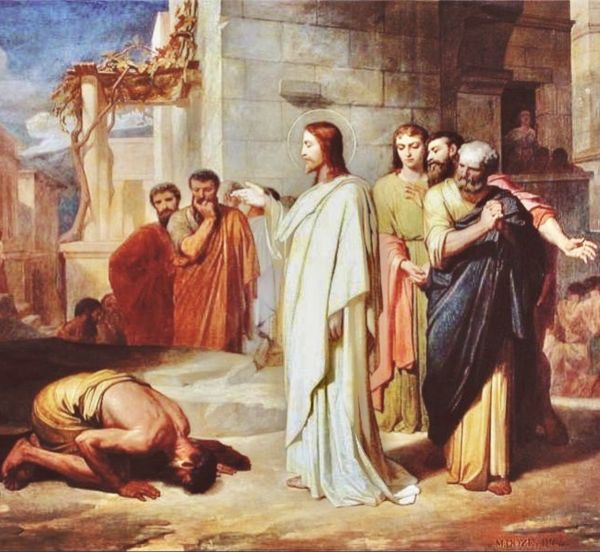Lk portrays Jesus healing a leper, exhorting him not to tell anyone and to go to the priest with the prescribed offering.
Francis 'the Minim' poured out on everyone the Gratuity received from Christ. A man of indomitable faith, he also embraced those who were excluded, going far beyond any judgement or stereotypical mentality.
In the Sources, the episode that makes him the guardian of the marginalised is of extraordinary beauty and special humanity.
We read:
"One day, while riding his horse across the plain at the foot of Assisi, he came across a leper.
That unexpected encounter filled him with horror.
But, thinking and reflecting that, if he wished to become a knight of Christ, he must first of all overcome himself, he dismounted from his horse and ran to embrace the leper and, as the latter extended his hand as if to receive alms, he handed him some money and kissed him.
Immediately he got back on his horse; but no matter how much he turned to look on all sides, and although the countryside stretched open all around, he could no longer see the leper in any way.
Therefore, filled with wonder and joy, he began devoutly to sing the praises of the Lord" (FF 1034).
"From then on he clothed himself in the spirit of poverty, an intimate feeling of humility and deep piety.
Whereas before he abhorred not only the company of lepers, but even seeing them from a distance, now, because of the crucified Christ who, according to the words of the prophet, took on the despicable appearance of a leper, he served them with humility and kindness [...].
He often visited the homes of lepers; he generously gave them alms and with great compassion and affection kissed their hands and faces" (FF 1036).
"And he stretched out his hand and touched him, saying, «I want [it]: be cleansed!». And immediately the leprosy departed from him" (Mt 8:3).
Proper Feria, 11 January












